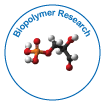Unsere Gruppe organisiert über 3000 globale Konferenzreihen Jährliche Veranstaltungen in den USA, Europa und anderen Ländern. Asien mit Unterstützung von 1000 weiteren wissenschaftlichen Gesellschaften und veröffentlicht über 700 Open Access Zeitschriften, die über 50.000 bedeutende Persönlichkeiten und renommierte Wissenschaftler als Redaktionsmitglieder enthalten.
Open-Access-Zeitschriften gewinnen mehr Leser und Zitierungen
700 Zeitschriften und 15.000.000 Leser Jede Zeitschrift erhält mehr als 25.000 Leser
Indiziert in
- Publons
Nützliche Links
Open-Access-Zeitschriften
Teile diese Seite
Abstrakt
Biodegradability of Acrylic Polymers
Alice Peterson
Plastic usage has skyrocketed in today’s fast-paced, convenience-driven economy. This has unintentionally resulted in a massive pile of plastic garbage harming the environment. Unfortunately, current methods of plastic waste management, such as recycling, dumping, and incineration, have all been shown to be inadequate. Recent breakthroughs in biodegradable polymers and microbial engineering strategies for more expeditious breakdown of plastic waste at composting facilities have resulted in a convergence on plastic waste management. This review study incorporates recent discoveries in the fields of biodegradable polymers and microbiological strategies for polymer waste management. Biodegradable polymer advancements have proven promising, particularly with aliphatic polyesters and starch in blends or co-polymers. Microbial techniques have been developed in order to identify microbial strains and comprehend their enzymatic breakdown process on polymers. New discoveries in these two areas have focused on increasing the rate of plastic waste decomposition in composting facilities. The most recent alignment of testing and certification standards is described in detail to provide detailed insights into the mechanisms and causes driving biodegradation. Despite recent advances, the economic sustainability of composting plastic waste in conventional waste facilities remains a long way off. As it stands, biodegradable polymers are functionally inferior to conventional polymers. Rather, it will need a shift in consumer behaviour to accept less durable biodegradable plastic items, which will decrease the barrier to commercialization of biodegradable polymers.
Zeitschriften nach Themen
- Allgemeine Wissenschaft
- Biochemie
- Chemie
- Genetik und Molekularbiologie
- Geologie und Geowissenschaften
- Immunologie und Mikrobiologie
- Klinische Wissenschaften
- Krankenpflege und Gesundheitsfürsorge
- Landwirtschaft und Aquakultur
- Lebensmittel & Ernährung
- Maschinenbau
- Materialwissenschaften
- Medizinische Wissenschaften
- Pharmazeutische Wissenschaften
- Physik
- Sozial- und Politikwissenschaften
- Umweltwissenschaften
- Veterinärwissenschaften
Klinische und medizinische Fachzeitschriften
- Anästhesiologie
- Augenheilkunde
- Betrieb
- Dermatologie
- Diabetes und Endokrinologie
- Gastroenterologie
- Genetik
- Gesundheitspflege
- Immunologie
- Infektionskrankheiten
- Kardiologie
- Klinische Forschung
- Medizin
- Mikrobiologie
- Molekularbiologie
- Neurologie
- Onkologie
- Pädiatrie
- Pathologie
- Pflege
- Toxikologie
- Zahnheilkunde

 English
English  Spanish
Spanish  Chinese
Chinese  Russian
Russian  French
French  Japanese
Japanese  Portuguese
Portuguese  Hindi
Hindi